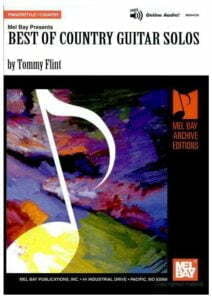Browse in the Library:
Hank Williams: the 100 most inspiring musicians of all time
(b. Sept. 17, 1923, Georgiana, Ala., U.S.—d. Jan. 1, 1953, Oak Hill, W.Va.)
American singer, songwriter, and guitarist Hank Williams (born Hiram King Williams) in the 1950s arguably became country music’s first superstar. An immensely talented songwriter and an impassioned vocalist, the “Hillbilly Shakespeare,” as he was often called, also experienced great crossover success in the popular music market. His iconic status was amplified by his death at age 29 and by his reputation for hard living and heart on- the-sleeve vulnerability.

As a boy, Williams was the musical protégé of Rufus Payne, an African American street performer who went by the name Tee-Tot and busked on the streets of Georgiana and Greenville, Ala. Probably taught his first chords by Payne, Williams began playing the guitar at age eight. He
made his radio debut at age 13; formed his first band, Hank Williams and his Drifting Cowboys, at age 14; and early on began wearing the cowboy hats and western clothing that later were so associated with him.
During World War II Williams commuted between Mobile, where he worked in
a shipyard and Montgomery, where he pursued a musical career. At this stage Williams began abusing alcohol, a problem that haunted him the rest of his life, but that came about partly as a result of his attempts to self-medicate agonizing back pain caused by a congenital spinal disorder. Later he would dull his physical pain with morphine, but when he sought to relieve the heartache of his tumultuous relationship with Audrey Sheppard, whom he married in 1942 (they divorced in 1952), alcohol remained his painkiller of choice.
Please, subscribe to our Library. Thank you!
In 1946 Williams landed a songwriting contract with Acuff-Rose Publications and began composing material for singer Molly O’Day. Later that year he received his first recording contract, with Sterling Records; however, it was on the start-up label MGM that he had his first hit, “Move
It is on Over” in 1947. Shortly thereafter, he became a regular on the newly created Louisiana Hayride radio program based in Shreveport, La.
His breakthrough moment came in 1949 with the release of “Lovesick Blues,” an old show tune that Williams parlayed into a chart-topping hit, an invitation to join the Grand Ole Opry in Nashville, and international fame. More than half of the 66 recordings he would make under his own name (he also released a string of religious-themed recordings under the name Luke the Drifter) were Top Ten country and western hits, many of
them reaching number one, including “Cold, Cold Heart,” “Your Cheatin’ Heart,” “Hey, Good Lookin’,” “Jambalaya (On the Bayou),” and “I’ll Never Get Out of This World Alive.” His extraordinary “Lost Highway” peaked at number 12.
Williams, who wrote most of his songs himself, crafted direct, emotionally honest lyrics with a poetic simplicity that spoke not only to fans of country and western music but to a much broader audience, as evidenced by the pop hit crooner Tony Bennett had with his cover of “Cold, Cold Heart” in 1951. Williams’s music itself was not especially groundbreaking, though he was a deft synthesizer of blues, honky-tonk country, western swing, and other genres.
However, his plaintive, bluesy phrasing was unique and became a touchstone of country music. Country music historian Bill Malone wrote that Williams “sang with the quality that has characterized every great hillbilly singer: utter sincerity.” Despite Williams’s many well-known heartbreak songs, it should also be remembered that he was capable of writing and singing with great joy and humor, as on, for example, “Howlin’ at the Moon.” The last years of his life were suffused in increasing sadness and substance abuse.

He died of a heart attack in a drug- and alcohol-induced stupor in the backseat of a car, probably in West Virginia, while being driven from Knoxville, Tenn., to a concert in Canton, Ohio. Red Foley, Roy Acuff, and Ernest Tubb, among others, sang Williams’s gospel-influenced “I Saw the Light” at his funeral, which was attended by thousands. His son, Hank Williams, Jr., a successful country performer in his own right (like Williams’s grandson, Hank Williams III), sang Williams’s songs in the film biography Your Cheatin’ Heart (1964).
